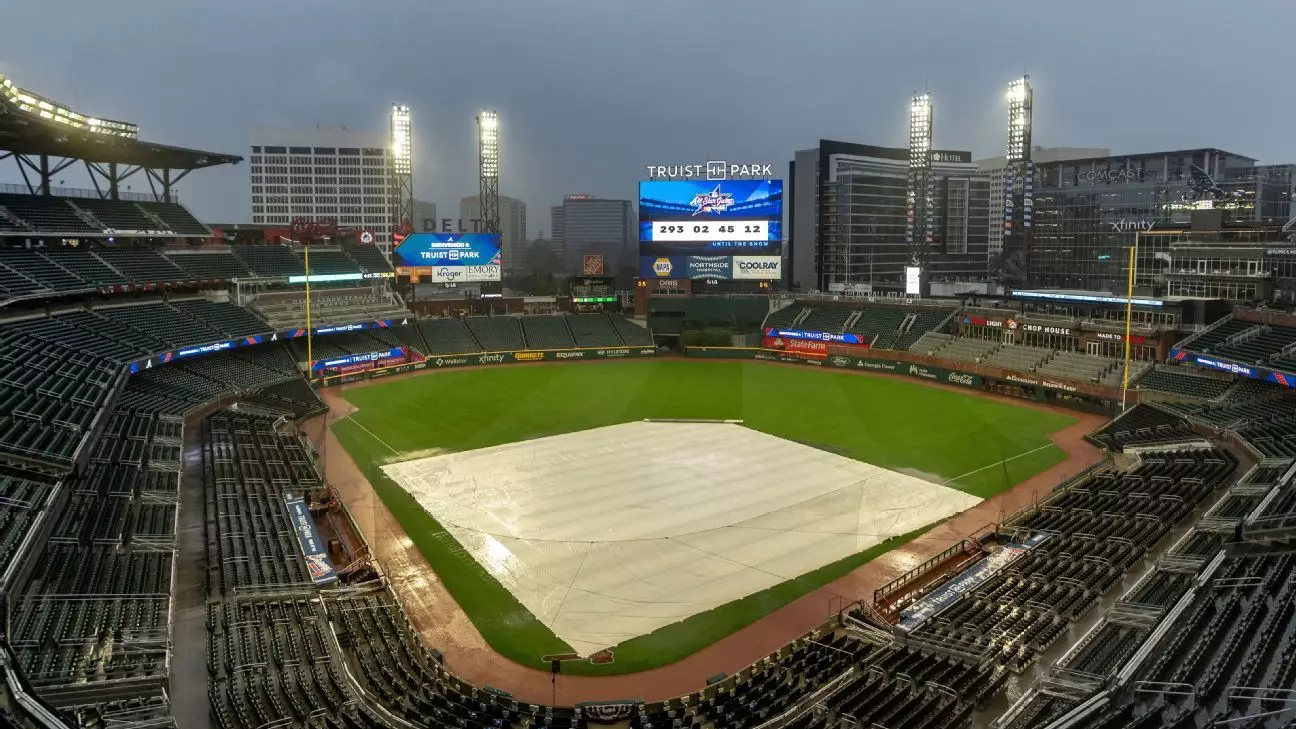The gripping conclusion to the Major League Baseball season is often fraught with excitement and tension, as teams push for playoff spots, battling both opponents and the clock. However, this year’s competition between the New York Mets and Atlanta Braves took an unexpected turn when heavy rainfall related to Hurricane Helene led to the postponement of crucial games meant to seal the fates of these playoff hopefuls. With the postseason looming, this disruption only amplifies the stakes for teams fighting for their playoff lives.
Originally scheduled to wrap up by Sunday, the regular season now risks extending into Monday, when the Mets and Braves will meet for a doubleheader. This unexpected twist not only complicates their immediate plans but also puts additional pressure on their upcoming series. The Mets currently lead the wild-card standings, though the tight competition means their playoff future hinges on more than just their performances; they will also need to contend with the unpredictable nature of weather conditions and travel logistics. For the Braves, the pressure mounts as they face a formidable weekend series against the Kansas City Royals, further complicating their pursuit of postseason glory.
In the wake of the postponements, thoughts from both teams’ management reveal differing approaches to navigating the unexpected challenges. Mets manager Carlos Mendoza reflected on the necessity of moving forward, emphasizing the need to focus on the next series and control what is manageable. His perspective speaks to a managerial philosophy that prioritizes adaptability and resilience amid chaos. In contrast, Braves manager Brian Snitker voiced concerns over potential chaos in scheduling and its impact on his team’s performance. These nuanced insights underscore the psychological and tactical maneuvering that managers must employ to maintain their teams’ focus and morale in tumultuous times.
As this wild card race develops, it is important to recognize the implications beyond just the Mets and Braves. The Arizona Diamondbacks are also heavily involved in this wild-card contention, adding yet another layer of complexity. Their ongoing series against the San Francisco Giants coinciding with the potential doubleheader raises questions about the strategic positioning of these teams as the regular season draws to a close. The Diamondbacks’ performance could significantly influence the wild-card outcomes, making the situation even more precarious for the Mets and Braves.
Furthermore, the postponement could impose unique travel challenges for the Mets. Should they successfully qualify for the playoffs, they face the daunting task of potentially returning to Atlanta for a doubleheader, only to then hustle to a new destination based on playoff scheduling. The physical toll of repeated travel and rapid transitions could impact player performance; nevertheless, Mendoza noted a possible silver lining in the form of unexpected rest. Certain players may benefit from the extra day away from the field, allowing them to recuperate before the intense playoff push begins.
As the playoff landscape shifts with weather-related delays, the narratives intertwining these teams evolve. The Mets and Braves are not simply competing for a chance at postseason play but are navigating the unpredictable nature of a sport influenced by external factors. The unfolding situation encapsulates the essence of sports—unpredictability, challenge, and the relentless pursuit of victory. How each team adapts to these changes will ultimately dictate their playoff destinies and test the mettle of ball clubs already worn thin by a grueling season. The excitement isn’t just in the games won or lost, but in every unpredictable twist that makes baseball the captivating sport we cherish.


Leave a Reply